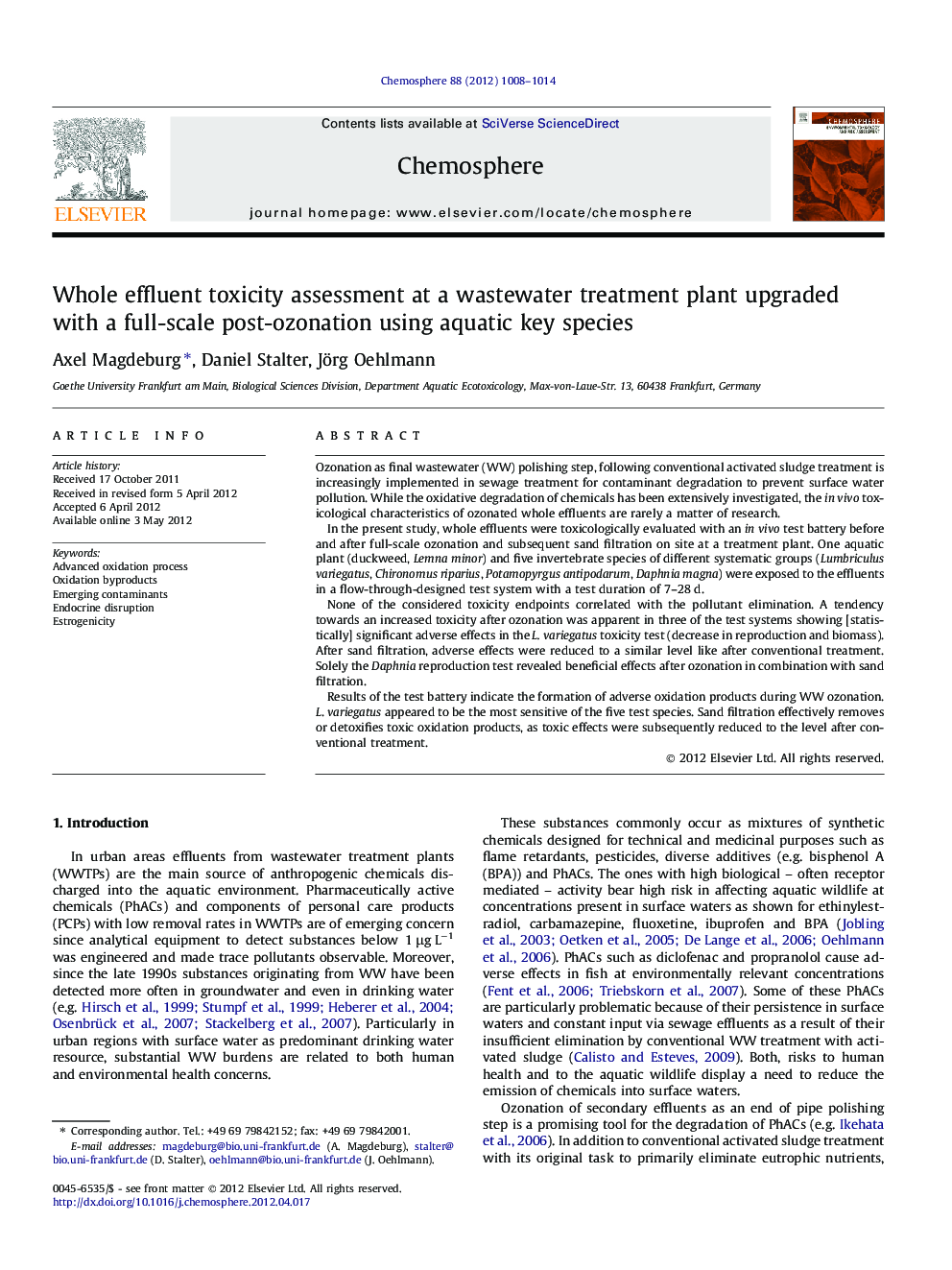| کد مقاله | کد نشریه | سال انتشار | مقاله انگلیسی | نسخه تمام متن |
|---|---|---|---|---|
| 6311054 | 1307498 | 2012 | 7 صفحه PDF | دانلود رایگان |

Ozonation as final wastewater (WW) polishing step, following conventional activated sludge treatment is increasingly implemented in sewage treatment for contaminant degradation to prevent surface water pollution. While the oxidative degradation of chemicals has been extensively investigated, the in vivo toxicological characteristics of ozonated whole effluents are rarely a matter of research.In the present study, whole effluents were toxicologically evaluated with an in vivo test battery before and after full-scale ozonation and subsequent sand filtration on site at a treatment plant. One aquatic plant (duckweed, Lemna minor) and five invertebrate species of different systematic groups (Lumbriculus variegatus, Chironomus riparius, Potamopyrgus antipodarum, Daphnia magna) were exposed to the effluents in a flow-through-designed test system with a test duration of 7-28Â d.None of the considered toxicity endpoints correlated with the pollutant elimination. A tendency towards an increased toxicity after ozonation was apparent in three of the test systems showing [statistically] significant adverse effects in the L. variegatus toxicity test (decrease in reproduction and biomass). After sand filtration, adverse effects were reduced to a similar level like after conventional treatment. Solely the Daphnia reproduction test revealed beneficial effects after ozonation in combination with sand filtration.Results of the test battery indicate the formation of adverse oxidation products during WW ozonation. L. variegatus appeared to be the most sensitive of the five test species. Sand filtration effectively removes or detoxifies toxic oxidation products, as toxic effects were subsequently reduced to the level after conventional treatment.
⺠Ozonation of effluents with no immediate beneficial effect on toxicity endpoints. ⺠Increased toxicity after ozonation was apparent in three out of five test systems. ⺠One endpoint revealed a reduced toxicity after subsequent post-treatment. ⺠L. variegatus exhibited highest sensitivity towards oxidation products. ⺠Biologically active sand filtration reduced toxicity of oxidation products.
Journal: Chemosphere - Volume 88, Issue 8, August 2012, Pages 1008-1014